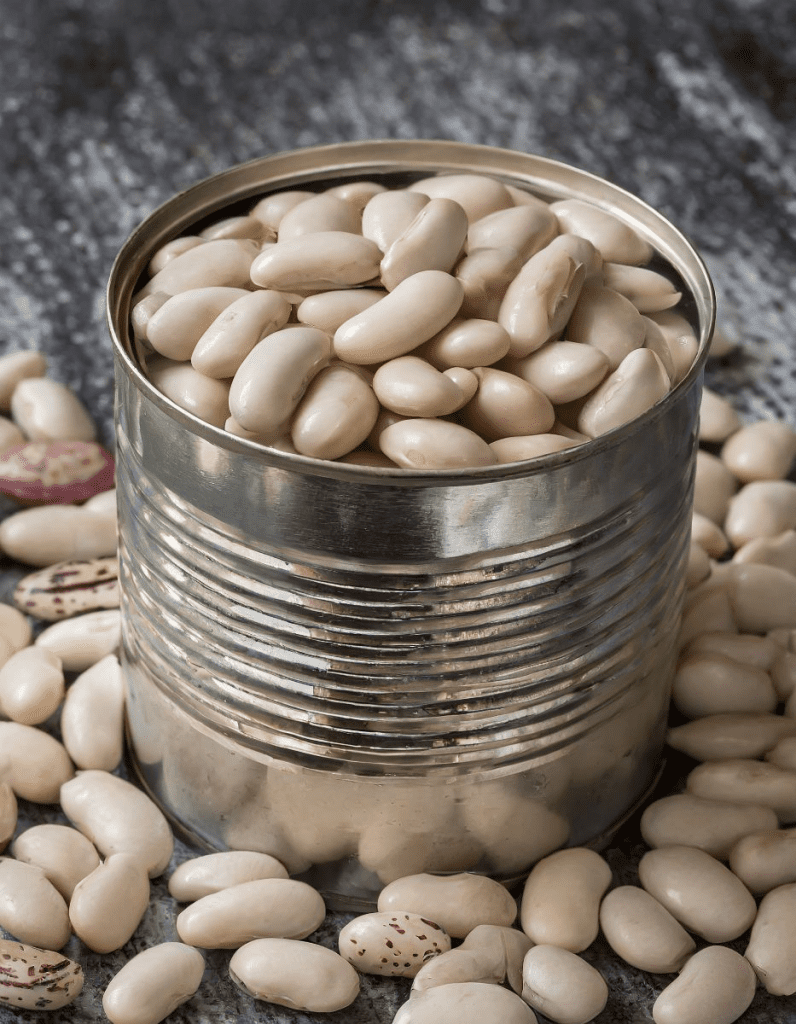Canned beans are a lifesaver for anyone looking to whip up a quick, nutritious meal. They’re affordable, packed with protein, and versatile enough to be the star ingredient in everything from soups to salads. However, a debate has persisted for years: should you wash and rinse canned beans before using them? In this article, we’ll dive deep into the pros and cons of rinsing canned beans and provide a clear guide to help you decide what works best for your kitchen.

You might be wondering why there’s so much controversy around something as simple as rinsing canned beans. The debate stems from a variety of factors, including concerns about sodium content, flavor, texture, and even nutrient retention. Let’s unpack these issues so you can understand both sides of the argument.
Understanding the Canning Process
Canned beans are pre-cooked and preserved in a liquid, often containing salt and other additives to ensure longevity. This liquid is called “canning brine,” and it’s essential to the shelf life of the beans. Some argue that rinsing the beans removes unnecessary sodium and preservatives, making them healthier. However, others believe that the liquid also carries some flavor and nutrients that you might not want to waste.
The liquid can be a flavor booster in certain recipes, but for those watching their sodium intake, it might be a bit too much. So, should you rinse it off? Let’s look at the key factors that might influence your decision.
Flavor: Does Rinsing Affect Taste?
One of the main arguments for rinsing canned beans is to mellow out their flavor. The canning liquid is often salty and can contribute to a stronger, sometimes metallic taste. Rinsing the beans can remove this overpowering flavor, giving the beans a more neutral taste that’s perfect for salads, salsas, and other delicate dishes.
On the flip side, if you’re making something hearty, like a soup or stew, where stronger flavors can enhance the dish, you might want to skip rinsing. The liquid can add depth to the broth, and you’ll be less likely to notice any saltiness or tang.
Sodium Concerns: Is It Worth the Rinse?
One of the most compelling reasons to rinse canned beans is to reduce their sodium content. The canning liquid often contains a significant amount of salt, which acts as a preservative and flavor enhancer. For people on a low-sodium diet, rinsing can make a big difference. Studies have shown that rinsing canned beans can reduce their sodium content by up to 40%.
If you’re monitoring your sodium intake due to health concerns, rinsing canned beans is a smart move. Simply place the beans in a colander under cold running water for about 30 seconds. This simple step can help reduce the salt while retaining most of the beans’ nutritional value.
Texture: Does Rinsing Improve the Bite?

Canned beans are pre-cooked, and as a result, they tend to be softer than their dry-cooked counterparts. Rinsing them can help improve their texture, making them slightly firmer and more suitable for recipes where a bit of bite is desirable, such as in salads or grain bowls.
If you prefer your beans to have a firmer texture, rinsing is a good practice. The canning liquid often contributes to a mushier consistency, so draining and rinsing can help restore some of the beans’ original firmness. However, if you’re making a creamy dish, like refried beans or a bean dip, the softness of unrinsed beans might be just what you need.
Nutrient Content: Will Rinsing Lead to Nutrient Loss?
One concern people have when rinsing canned beans is the potential loss of nutrients. The canning liquid contains some water-soluble vitamins and minerals, such as B vitamins and potassium, which may leach from the beans during the canning process. By rinsing, you might wash away some of these nutrients.
However, the nutrient loss from rinsing is minimal. If you’re worried about missing out on vitamins and minerals, you can easily compensate by incorporating other nutrient-dense foods into your dish, like vegetables, whole grains, and healthy fats.
When Should You Skip Rinsing?

There are times when you might want to skip rinsing canned beans altogether. If you’re making a dish where you need a thicker consistency or extra flavor, the canning liquid can be your ally. For example, in soups, stews, or chilis, the liquid can add richness and help thicken the dish without the need for additional broth or seasoning.
In these cases, using the beans straight from the can, liquid and all, can save time and enhance the overall flavor. Just be mindful of the saltiness and adjust your seasonings accordingly.
Conclusion: Should You Wash and Rinse Canned Beans?
At the end of the day, whether or not to rinse your canned beans comes down to personal preference and the dish you’re making. If you’re concerned about sodium, want a milder flavor, or prefer a firmer texture, rinsing is the way to go. On the other hand, if you’re in a rush, making a dish where flavor and thickness are key, feel free to skip the rinse and use the beans straight from the can.
Canned beans, whether rinsed or not, remain a nutritious, budget-friendly option that can elevate any meal. So, the next time you reach for that can, you’ll know exactly what to do to make the most of this pantry staple!


